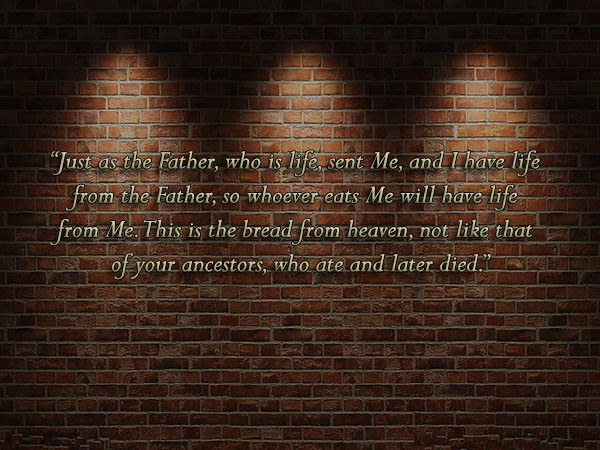Mt 18:21-35
Then Peter asked him,“Lord, how many times must I forgive the offenses of my brother or sister? Seven times?” Jesus answered, “No, not seven times, but seventy-seven times. This story throws light on the kingdom of Heaven: A king decided to settle accounts with his servants. Among the first of them was one who owed him ten thousand pieces of gold. As the man could not repay the debt, the king commanded that he be sold as a slave with his wife, his children and all his goods, as repayment.
The servant threw himself at the feet of the king and said, ‘Give me time, and I will pay you back everything.’ The king took pity on him, and not only set him free, but even canceled his debt.
When this servant left the king’s presence, he met one of his fellow servants, who owed him a hundred pieces of silver. He grabbed him by the throat and almost choked him, shouting, ‘Pay me what you owe!’ His fellow servant threw himself at his feet and begged him, ‘Give me time, and I will pay everything.’ But the other did not agree, and sent him to prison until he had paid all his debt.
Now the servants of the king saw what had happened. They were extremely upset, and so they went and reported everything to their lord. Then the lord summoned his servant and said, ‘Wicked servant, I forgave you all that you owed me when you begged me to do so. Weren’t you bound to have pity on your fellow servant, as I had pity on you?’ The lord was now angry. He handed the wicked servant over to be punished, until he had paid the whole debt.”
Jesus added, “So will my heavenly Father do with you, unless you sincerely forgive your brothers and sisters.”
REFLECTION
The Lenten season is replete with readings that challenge us to put into practice the gospel teachings. Forgiveness is one of them. From today’s parable we can glean its characteristics and our difficulty as humans to practice it. God’s forgiveness is not quantifiable because of its very nature as prodigal and lavish. It is immeasurable using human standards. When Peter questioned Jesus how many times must one forgive, he was asking for a quantity, but Jesus replied with an equation that symbolizes the unquantifiability of forgiveness. Forgiveness is not only relational but also mutual and trusting, echoing a phrase from the Lord’s Prayer, “Forgive us our trespasses as we forgive those who trespass against us.” We know this in principle, but often our hurts are greater than our capacity to forgive, thus we cannot forgive from the heart without God’s grace. Forgiveness does not mean forgetting, condoning, or favoring what was done. Nor does it mean disregarding or excusing cruelty or injustice. Forgiveness is a decision to move forward in our relationships, to go beyond our vengeful reaction when we are hurt. It means breaking the cycle of evil that revenge perpetuates. Do we sincerely desire to forgive those who have hurt us?
CLARETIAN COMMUNICATIONS FOUNDATION, INC.
8 Mayumi Street, U.P. Village, Diliman, 1101 Quezon City, Philippines
Tel.: (02) 921-3984 • Fax: (02) 921-6205, 927-7429
Bookstore: (02) 924-6835
Email: ccfi@claretianpublications.com / cci@claret.org
Website: www.claretianpublications.com






